Fine Art Studios
The Bachelor of Arts (Fine Art) has a two-stage enrolment process. In stage one, you will enrol via Enrolment Online into our courses for semesters one and two. In stage two, you will select your semester one classes for Fine Art Studio and Workshop classes, and semester one and two classes for ART: History+Theory+Cultures via a preferencing process.
This page will assist you with stage two of the enrolment process. Here you will find a list of potential semester one Fine Art Studio classes. (Note: There is a separate page for Fine Art Studio classes and a separate page for ART: History+Theory+Cultures classes.) You will only take one Fine Art Studio class in semester one, but you need to list two (2) preferences. These Fine Art Studios will be for both second and third year students and will be offered under the following course codes:
Fine Art Studio 3 VART 3646 (2nd year)
Fine Art Studio 5 VART 3648 (3rd year)
These are the course codes you enrolled into in stage one of the process.
Read the list below carefully and select two Fine Art Studio classes you would be happy to take for semester one. The 2019 preferencing process will be communicated to you by email later this year.
Remember these Fine Art Studio classes are 24 credit point courses and will require 6 contact hours per week.
IMPORTANT – You must not repeat any class in your preference lists. Every effort will be made to place you in your first preference classes.
Please note: although we would like to offer all of the Fine Art Studio options below, classes are subject to viability and may not run if numbers are too low.
Course Information
Offering Studio

Robin Kingston, Bundoora Lobby detail, 2017, Acrylic on the wall, Image Courtesy of the artist ©Robin Kingston
Abstract Practices
This course will be used as a platform to examine how artists initiate abstract art in diverse mediums. How do abstract artist gather their ideas? How do they develop those ideas into artworks? How does one make abstract art and what can those works be about? What is the content inherent in Abstract artwork? Abstraction is not limited to painting, and this course will explore diverse and appropriate mediums to your practice and multiple abstract strategies, which can be put to use in the development of your individual interests and resulting artworks. We will also examine issues in predominantly Western abstraction and how artists generate abstract artworks from material, strategic and conceptual content.
The course will be delivered primarily through group tutorials, where you will present your artworks for critical review by your peers and teaching staff. This will be supported by class discussions and student presentations that focus on supporting the development of a body of exploratory and experimental artworks relating to your individual interests and interpretation of abstract strategies and practices. You will be encouraged to find your own way to draw from the rich field of abstraction and interpret ideas as they relate to your own individual art practice
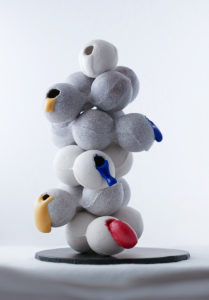
Kristin Burgham, 2018
Ceramic Object Making and Material Research Project
In this course, you will undertake a semester long research project to produce a research archive as well as a body of ceramic objects that respond to this research. You will extensively research an area of direct interest to you and your ceramic practice. You will encompass your research into finished work. This course will assist in developing your ability to conduct and document research that is integral to the ongoing practice in all creative disciplines. You will choose a topic that is relevant to the current direction of your work and that will engage you physically and mentally. It is possible that this will lead directly into future ceramic studio work.
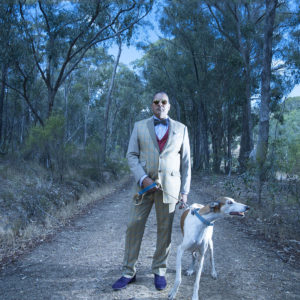
Rhett D’Costa, Bespoke, 2013, Inkjet photographic print
Image courtesy of the artist © Rhett D’Costa
Hybridity & Migration
The histories of migrations have had a significant impact on the world, its cultures, peoples and nations. Hybridity, particularly through a postcolonial lens, has seen the development of new transcultural forms particularly within the contact zones of colonization. Together the interrelated impacts of hybridity and migration will establish a platform which gives you permission to draw on the rich and diverse fields of knowledge embedded within these two terms, to use in your evolving art practice.
These fields of knowledge, which this course navigates, is complex and extremely relevant to contemporary art. Artists have an important role to play in interrogating and interpreting from these terms. These terms are used across diverse disciplines and their meanings are contextualized and interpreted in different ways. In this course, we can look at these terms through an experimental art practice and see what happens…what is possible.
The course will be delivered primarily through group tutorials, where you will present your artworks for critical review by your peers and teaching staff. This will be supported by class discussions and student presentations that focus on supporting the development of a body of exploratory and experimental artworks relating to your individual interests and interpretation of the course thematic. You will be encouraged to find your own way to draw from this rich field of research and interpret ideas as it relates to your own individual art practice.
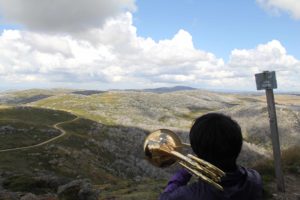
Miyamoto, n.d.
Immersive Environments
In this course, you will explore the application of site responsive art to afford immersive and embodied encounters between artwork and audience. The course will draw on the history and theory of environmental art as applied to installation art, performance and multi-channel sound composition to provide examples of how artists engage with natural and built environment. You will be instructed in how to work with multi-speaker environments and recordings systems to articulate new experiences of space and place. Students will be provided access to a surround sound studio and AV facilities to develop art works. The course will be offered in different environmental contexts to demonstrate various approaches to field work drawing on the material, acoustic and spatial characteristics of site in the formation of site responsive art works and practices. This course is relevant for students interested in sound art, performance and live art, land and environmental art, and installation and spatial practices. It does not require prior knowledge of sound or music.
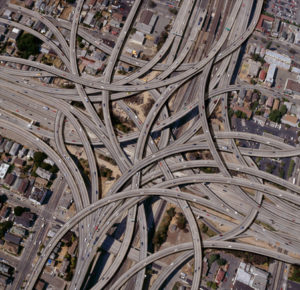
John Lund, Complex Freeway Interchange Network, 2018, photograph, dimensions variable
Intersections: Exploring the analogue digital interface through print discourses
In this course, you will engage with contemporary art practices that deploy studio theories and philosophies of print imaging as a springboard to art making that go beyond the workshop edition. You will engage in conceptual and technical explorations that expand your current understanding of the analogue digital interface. You will investigate and experiment with handmade, machine made and screen based methods to consider your practice in relation to local, national and international contemporary ideas and practices in printmaking & photography. You will also be encouraged to develop your own practice with consideration of audience, the practice of your peers, and how these operate within the art community and society in general.
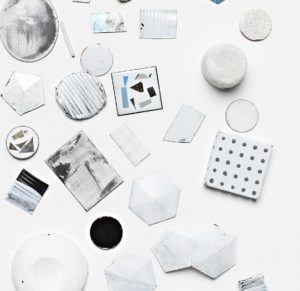
Kirsten Haydon, 2012
Jewellery & Object Major Research Project
In this course, you will undertake a semester long research project to produce a "Research Archive" and "Final Resolved" works. During this time, you will choose your own subject to explore that is relevant to the direction of your work. This will include identifying the topic, technique and material for exploration. You will develop methodologies in your "Research Archive" to incorporate into and develop a "Final Resolved" group of both jewellery and object based works.
This course will assist in developing your ability to identify an area of research, conduct experimentation and then document that research. This major project will be integral to your ongoing creative practice and will assist you in developing your artistic position and the directions of your future work.
This course is suited to students from Gold & Silversmithing and those who have taken the elective Jewellery Fundamentals. You will need jewellery tools, PPE and materials in this course, please email the Gold & Silversmithing Studio Leader for more details.
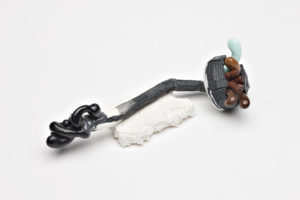
Nicholas Bastin
Jewellery & Object Miniatures
In this course, you will investigate the place of the miniature in your work. You will experiment with different methodologies and explore how narratives can be used to create small scale work. You will research contemporary artists who engage with the notion of the miniature and examine examples of historical and contemporary miniature objects.
The work you make in this course will focus on the power of the miniature object to transport the viewer into an alternate space through the consideration of scale within the larger world.
This course is suited to students from Gold & Silversmithing and those who have taken the elective Jewellery Fundamentals. You will need jewellery tools, PPE and materials in this course, please email the Gold & Silversmithing Studio Leader for more details.
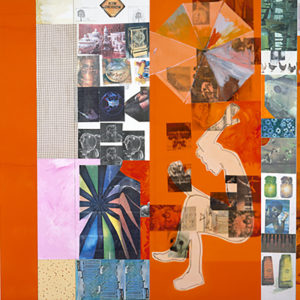
Robert Rauschenberg , The 1/4 Mile or 2 Furlong Piece, 1981–98 (detail), mixed media
Painting Drawing Materialities
In this course you will focus on the dialogue of drawing, painting & materiality in contemporary art and its development through your studio practice.
You will investigate a variety of making strategies and pictorial systems of visual information that inform how painting and drawing practices create individual meaning and cultural engagement.
Through studio research you will explore different forms of imagery expressed through a range of techniques and relationships between 2d and 3d.
How do paintings and drawings operate as elements in installation / space? What is the role of the viewer experiencing and interpreting artworks. What is the “objectness” of image making. You will investigate the material natures of object and image evident in many forms of current contemporary practice, developing a wide range of experimental and works, leading to a self initiated individual practice.
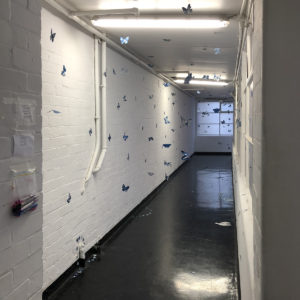
Emily Kooter, Corridor-butterfly affect, 2018, pigment on paper, torchlight. Dimensions determined by the site
Passages: Art and Encounter
In this course you will develop your emerging practice as contemporary art employing and disrupting conventions of making and extending ideas of authorship and agency beyond the studio to exhibition. We are in a critical time where histories and narratives are being challenged and rethought/reactivated. A lot of this work is being done by artists testing the idea of art as an experiential threshold.
You may explore personal, public or political ideas relevant to your studiowork leading to the development of resolved and self-directed projects. The course is framed by theories of the viewer and the art object, how meaning is generated within the contexts of local & global histories, exhibition spaces and artist initiatives. You will position and test new ways of making your work, navigating the path from studio to installation.
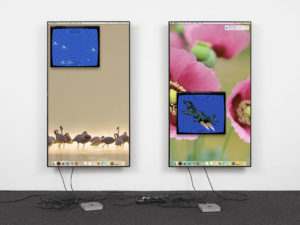
Cory ArcAngel
Post Internet Art
This course explores how the impact of the internet has transformed notions of contemporary art practices. With a central focus on Post internet art which acknowledges the profound socio-cultural effects that have resulted from the conflation of everyday life and the internet. Post-Internet does not imply a time “after” the Internet but rather a time “about” the Internet. Exploring not only the impact the internet has had on art practice, but also how we think about what contemporary art is. Considering both emerging and traditional methods this course in not about internet technology but rather the cultural condition of the internet and what it means to be in the post internet era. The course will consist of lectures, discussions, group and individual tutorials and gallery visits.
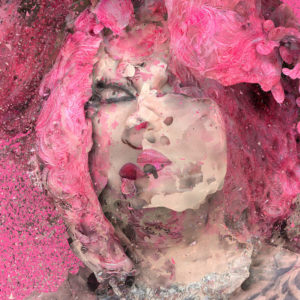
Still from Virtual Drag by Alison Bennett, Megan Beckwith & Mark Payne
Print as Other: Gender and Queer strategies for art production
In this course, you will engage with contemporary art practices that deploy ‘otherness’ as a point of departure, with specific attention to gender and queer discourses that generate spaces beyond arbitrary cultural norms. You will focus on reproductive technologies such as printmaking and photography that challenge the status of the unique art object developing a praxis formed through intersectionality. In this context, you will be challenged to research other practitioners' methodologies and experiment with processes beyond your current practice. You will be directed to appropriate resources and instructed in divergent methods sensitive to the needs of your practice. You will participate in group critique sessions as well as individual tutorials to assist you in contextualising your work in relation to historic and contemporary art practices that engage with positions of ‘otherness’. You will develop a strong folio of work and transition towards becoming a self-managed art professional.

Rembrandt Bugatti at the zoo in Antwerp (1910)
Sculpture, Nature and the Body
This course explores the natural world, including animals, plants and the human body through life drawing, modeling and casting and other production techniques and is designed to tap into to our inherent fascination and interest in the diverse characteristics of natural phenomena. Through audiovisual presentations you will also be introduced to a range of artists who have studied and taken visual, material and conceptual inspiration from a wide range of animal life, botanical forms, geological structures and other natural phenomena. The course will be comprised of a series of projects, which will provide you with opportunities to study aspects of nature whilst giving you the freedom and encouragement to develop your own projects. You will undertake human body studies as well as live drawing and modeling activities involving animals at the zoo, botanical gardens and the museum as well as a range of research and making related activities.
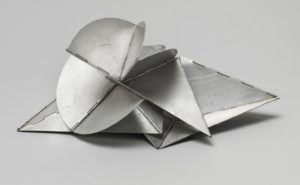
Creature-Maquette (320) 1964 Lygia Clark 1920-1988 Presented by the American Fund for the Tate Gallery 2012 http://www.tate.org.uk/art/work/T13710
Studiowork - Concept and Construction in Sculpture
This course focuses on developing student work by engaging with practical techniques in contemporary sculpture from test pieces to finished sculpture. In this course you will explore a range of experimental projects that relate to sculpture through object making, materials, development and construction. This will be supported by a series of hands-on sessions introducing and revising basic sculptural techniques and materials from simple joinery to welded steel. The course aims to give you the skills and hands-on experiencing to enable you to develop work with strong conceptual and sculptural properties whilst giving you the freedom and encouragement to develop your own projects.
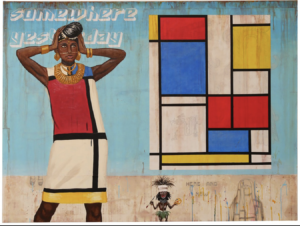
Image – Enrique Chagoya, “Somewhere Yesterday (Here and Now)” 2016
Acrylic and water based oil on amate paper mounted on stretched canvas 60x 80 cm – Anglim Gilbert Gallery.
Symbiotic Practices - Painting, Object and Installation
This course extends your painting practice to encompass an expanded view of what painting can be in contemporary art.
Including how contemporary arts inter-linked activities may be developed into new and open-ended fields of enquiry.
You may, for example, study how the concepts of painting as image may be transformed to the investigation of painting as object. The use of assemblage leading to ideas of installation and immersive environments will also be explored, and encouraged, as symbiotic activities. All media will be encouraged to be used if the direction of your project suggests such an expansion.
The course will examine and explore how symbiotic relationships between related, but different fields of contemporary art practice can be researched, explored and find resolution through a studio-based practice.
You will develop your own studio work proposal in this course.
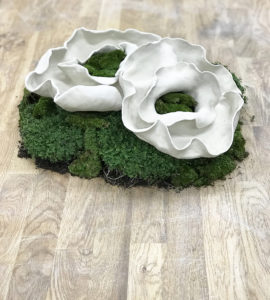
Annabelle Stonehouse, 2018
The Narrative Through Clay
In this course, you will undertake a series of creative projects where you will explore how the ceramic object can convey narrative. You will investigate different narrative modes, which will include retelling personal experience through making, using literature sources as instigation and portraying character through ceramic based works. Initial project development will involve research through the collection of literary and visual resources, as well as experimental and explorative drawing processes. You will engage with a variety of different ceramic processes to begin to develop a personal methodology of making.
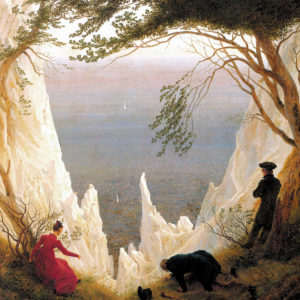
Caspar David Friedrich, Chalk Cliffs on Rügen, 1818, Oil on Canvas
Wonderlust: Extended Studio Practices
In this course you will explore and extended ideas of contemporary art practice that may be medium specific, or across various media. Ideas may form through almost any strategy from picture making, narrative, figuration, time-based practices, installation and event-based work. You will investigate thematic and self-directed projects that address meaning within the production and exhibition capacity of your emerging art practice.
Wonderlust is the desire to be in a heightened state of wonder, so in responding to this idea of wonder, and wandering, you will be given opportunities to work through experimental ideas, practices and processes. You will investigate thematic and self-directed projects to consider ideas of what an art practice and the dynamics of an art practice could be in terms of how ideas may be evolving within our current times, leading to the development of resolved projects.